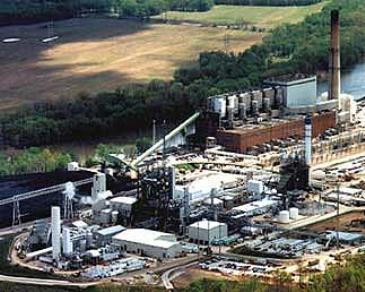Community Decries Southeast Gas Plant Deal
By Chris Bentley in News on Jul 18, 2012 9:40PM
 At least 100 people took to the Thompson Center last week to protest a coal gasification plant proposed for the city’s Southeast side.
At least 100 people took to the Thompson Center last week to protest a coal gasification plant proposed for the city’s Southeast side.
They urged Gov. Pat Quinn to veto a bill (SB3766) that would allow New York-based Leucadia National Corp. to sell natural gas made from coal and refinery waste to Illinois ratepayers at a guaranteed rate for 30 years.
Proponents note the project would create 1,000 temporary jobs, and 200 permanent jobs once the facility goes online in 2015. But critics say a fixed-rate deal will swindle taxpayers and stick an already suffering neighborhood with more pollution.
“We have a community blanketed with coal and pet coke dust,” said Peggy Salazar, executive director of the Southeast Environmental Task Force. “This is not the kind of development we want to see here.”
The deal is a reprisal of one passed by the State Senate and vetoed by Quinn last March. The Illinois Commerce Commission has since authorized funding for 84 percent of the facility’s construction costs, and the bill that landed on Quinn’s desk in June seeks to fill in the rest.
Chicago Clean Energy, the Leucadia subsidiary that would operate the plant, has said it cannot finance the project without a state guarantee it will recover 100 percent of construction costs. They still need about $480 million dollars.
Private finance may be difficult to secure because the plant’s product competes with natural gas, a volatile commodity whose price has plummeted since previously inaccessible reserves became available in recent years.
The $3 billion plant, which would be built at 11600 S. Burley Ave. on an abandoned steel site, produces a form of natural gas by heating coal and petroleum coke — a product of oil refineries. That gas would be piped to consumers for heating and cooking.
Because they don’t combust the coal, the plant can isolate pollutants like heavy metals and carbon dioxide more easily than can power plants that burn coal for electricity.
Leucadia said they would sequester carbon dioxide produced by the process, but have not offered any details. There are currently no commercial sequestration sites in the Midwest.
“They expected us to embrace the project,” Salazar said, “because it’s being sold as clean energy.” The plant will also draw millions of gallons of water from the Calumet River for cooling, as well as boost demand for coal and petroleum coke — hazardous materials with sizable environmental footprints at their points of extraction from the earth.
The Sun-Times and The Tribune have both written editorials blasting the deal. They echo the concerns of two utilities who rejected 30-year purchase contracts for Leucadia’s product, which is not competitive with gas currently on the market. That could leave the ratepayer on the hook, they say, if Leucadia’s gamble on a price drop does not pay off. Pressure to create jobs and bring unused land back on the tax rolls could persuade Quinn to bet with Leucadia.
“Governor Quinn, put these construction boots to work and sign this bill,” said Chicago Regional Council of Carpenters business representative Daniel McMahon, outside the Thompson Center July 9.
“I don’t begrudge our friends in organized labor who are doing what they can to find work in an unemployment crisis,” said Jack Darin, director of the Illinois chapter of the Sierra Club. “We just think there are better ways to create jobs.”